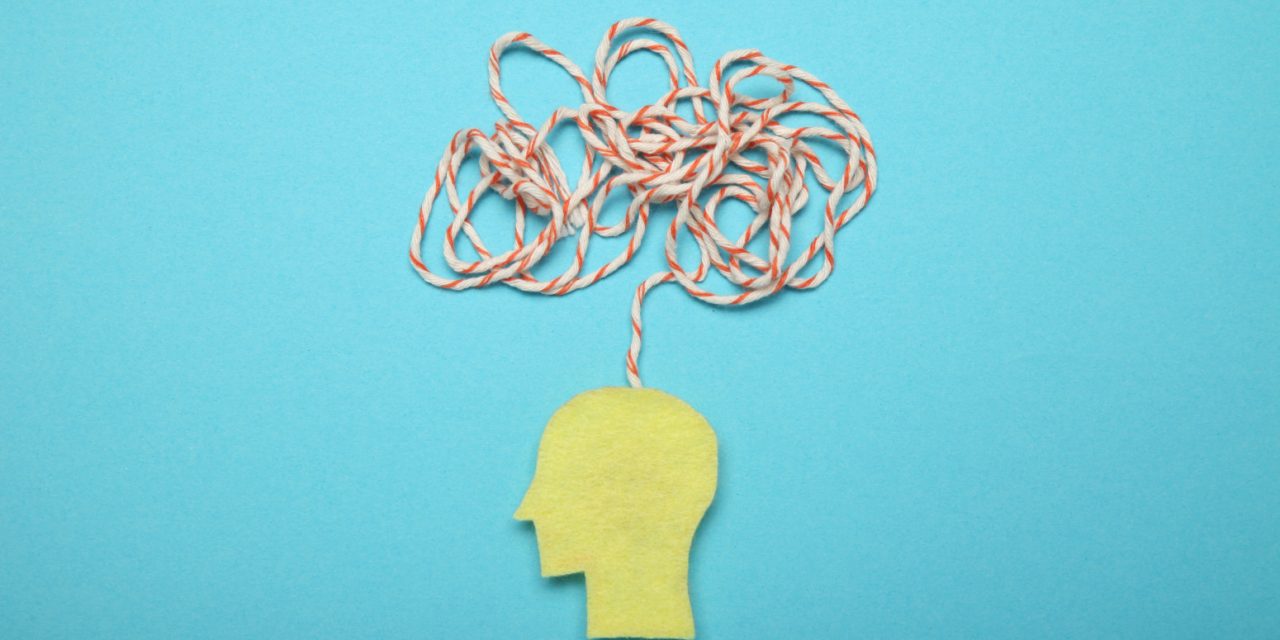Image Credits: Andrii Zastrozhnov/Shutterstock.
I wouldn’t describe myself as a hypochondriac because I don’t obsess about my health or eventual death, and I’m generally a functional person. But I have something I can only describe as “episodes.” The first time it happened, I was making a long trip on the turnpike. I was in my early 20’s and in excellent shape, but I started to have weird pains in my torso and it freaked me out. Was I having a heart attack? What was going on? Since I was driving, I had to maintain my concentration, but a cascade of stress hormones started a process that I guess is best described as a panic attack. I’m not expert on these things, and back then I don’t think I’d ever heard of a panic attack. I had no coping skills.
That process repeated itself off an on for a year or so, and it definitely preferred to pick on me while I was driving. It got to the point where knowing I was going to have to make a long drive could trigger it. I never really had a good explanation for why any of that started or why it suddenly stopped.
It came back in my early 40’s, and by then I had some theories. I was drinking too much, smoking too much, and not getting enough sleep. I quit drinking when I turned 45, and the problem disappeared again. If it ever cropped up again, catching up on my sleep seemed to solve it right away.
Then, about two years ago, I started to have a problem where I’d get nerve pain in weird parts of my body. I live in the woods, and I’ve had Lyme disease at least three times. One symptom of Lyme is that you get strange pains, sometimes in your joints, sometimes in your nerves, and sometimes in your muscles. Fortunately, the antibiotic they give you for Lyme is very effective, even if it makes you incredibly sensitive to sunlight. I went to the doctor and told him that I wanted to be tested for Lyme. It came back negative, but that worried me even more. More tests were run, and the doctor even seemed to think cancer was a possibility, which obviously freaked me out. But eventually he sat me down and told me that he believed all the symptoms I was experiencing were entirely a product of my mind.
He didn’t mean I was crazy or that what I was experiencing wasn’t real. He meant my mind was causing the nerve damage. I had trouble accepting that this was possible, but he told me that ever since Donald Trump was elected, he’d seen a number of patients present with these kind of stress-induced problems. I went home that day unsure of what to think, but the nerve damage was gone within a week and it didn’t return.
That was the first time I really understood how my mind can make me sick. But knowing this also gave me new power to recognize the difference between real and imagined symptoms. There was less of a distinction than I had understood, but the two things were still not the same. I now had more control over how my subconscious affected my health.
The Covid-19 pandemic has put these skills to the test in a big way, but I can recognize what’s happening now. Once I read about the symptoms, I started to experience those symptoms. Then, a new article would come out and say that doctors had identified new problems caused by the virus, and I would begin to experience those symptoms, too. But, instead of assuming I had been infected and starting a cascade of panic, I knew it was far likelier that my mind was producing this and that it wasn’t real.
One problem I’ve had with this is common to most men, which is that it’s just very hard to admit to anyone that you have panic attacks. I remember that this was a major theme of The Sopranos, where the lead character sought psychological treatment for the problem but couldn’t let anyone know because it was the kind of weakness a mob boss wasn’t allowed to show. Even locked in my my house with my wife and son, I’m reluctant to tell them that my body is absolutely pulsing with stress hormones and that I need to go lie down.
It’s harder now, too, because I actually do have to be very attuned to my body and any possible symptoms in case I need to separate myself from my family. My wife has asthma, which is fortunately not turning out to be as correlated with Covid-19 death as some feared, but it’s still not something we want her to test. So, if I’m experiencing shortness of breath, I can’t just write it off as stress-induced.
One thing I can tell you is that it’s impossible to write if you’re overwhelmed with stress. I felt fine last night while I was watching television, but as soon as my programs were over, I began to experience symptoms that worried me and made it hard to sleep. The moment I woke up, the same symptoms returned. It would literally have been impossible for me to write about anything other than this today because I can’t take my focus off myself long enough to write about some item in the news. By acknowledging this, and writing about my experience, I was able to calm the stress I’m feeling and along with it a lot of the symptoms.
One thing that’s unusual about this is how it is almost entirely driven by the subconscious. In that respect, it’s no more predictable than dreams, and not a whole lot more rational. I’m not living in waking fear, but am instead sporadically overtaken by fears that operate below the surface.
I know what to do: drink less coffee, exercise, get as much sunlight as possible, and use breathing and other relaxation techniques. I think a different president would help, too.
I hope some other people will benefit from reading about my experiences, because I’m sure I’m not alone. I suspect many people are going through this for the first time and don’t understand how much power the mind has to make you sick. It won’t help to tell you not to panic, but it might help to tell you not to panic about panicking.







